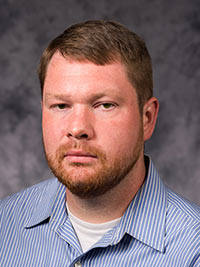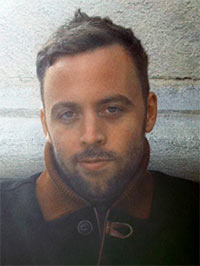The National Endowment for the Humanities has awarded grants to three Rochester faculty members.
Susan Uselmann, assistant professor of humanities at the Eastman School of Music, and Thomas Devaney, assistant professor of history, won “Enduring Questions” grants, which aim to help in “the development of a new course that demonstrates the enduring value of the Humanities by extending beyond traditional disciplinary boundaries.” Peter Christensen, assistant professor of art history, received a Summer Stipend.
“Enduring questions persist across historical eras, regions, and world cultures,” according to the NEH. “Enduring questions have more than one plausible or compelling answer, allow for dialogue across generations, and inspire genuine intellectual pluralism.”

Uselmann’s course will be on creativity, including the changing perceptions of creativity through time and whether creativity has an ethical dimension. “I see great potential in developing a Humanities course that brings together the various ‘silos’ of the University to address a common interest,” Uselmann says.
Uselmann received her undergraduate degree at the University of Michigan, and her MA and PhD at the University of Wisconsin-Madison. She previously taught at Rhodes College in Memphis, Tennessee, and at St. John Fisher College in Rochester. She is working on a book entitled Imaginary Readers: Lay Literacy, Memory and Devotional Reading in Late-Medieval England. At Eastman, she has taught the freshman writing seminar and creative writing, as well as courses on fairy tales and J.R.R. Tolkien’s The Lord of the Rings.

Devaney will offer a new course in spring 2017 on the history of death and dying. The seminar class for freshman and sophomores will consider how religious thinkers, philosophers, artists, and ordinary people have confronted questions related to death: Is death the end? Is immortality possible or desirable? How should knowledge of inevitable death affect how you live your life? “In the modern developed world, mortality is far more removed from everyday life than it has been in most societies,” Devaney says. “The result is that death and dying is unfamiliar to modern university students.” This offering is in addition to other classes at the University on death.
Devaney joined the University in 2013 and is conducting research this academic year at the Herzog August Bibliothek in Wolfenbüttel, Germany and at the University of Helsinki’s Collegium for Advanced Studies. He received his bachelor’s degree from Trinity College, and has master’s degrees from Boston College and the University of Chicago and a PhD from Brown University. His first book, Enemies in the Plaza: Urban Spectacle and the End of Spanish Frontier Culture, 1460-1492, was published by University of Pennsylvania Press in 2015.

Christensen’s $6,000 award will support completion of his book, Germany and the Ottoman Railways: Art, Empire, and Infrastructure. He received his bachelor’s degree from Cornell University, a master’s degree from Harvard University Graduate School of Design, and a PhD from Harvard University. His research interests include 19th- and 20th-century architectural history, the history and aesthetics of infrastructure and industry, cartography and architecture, and critical digital humanities.


